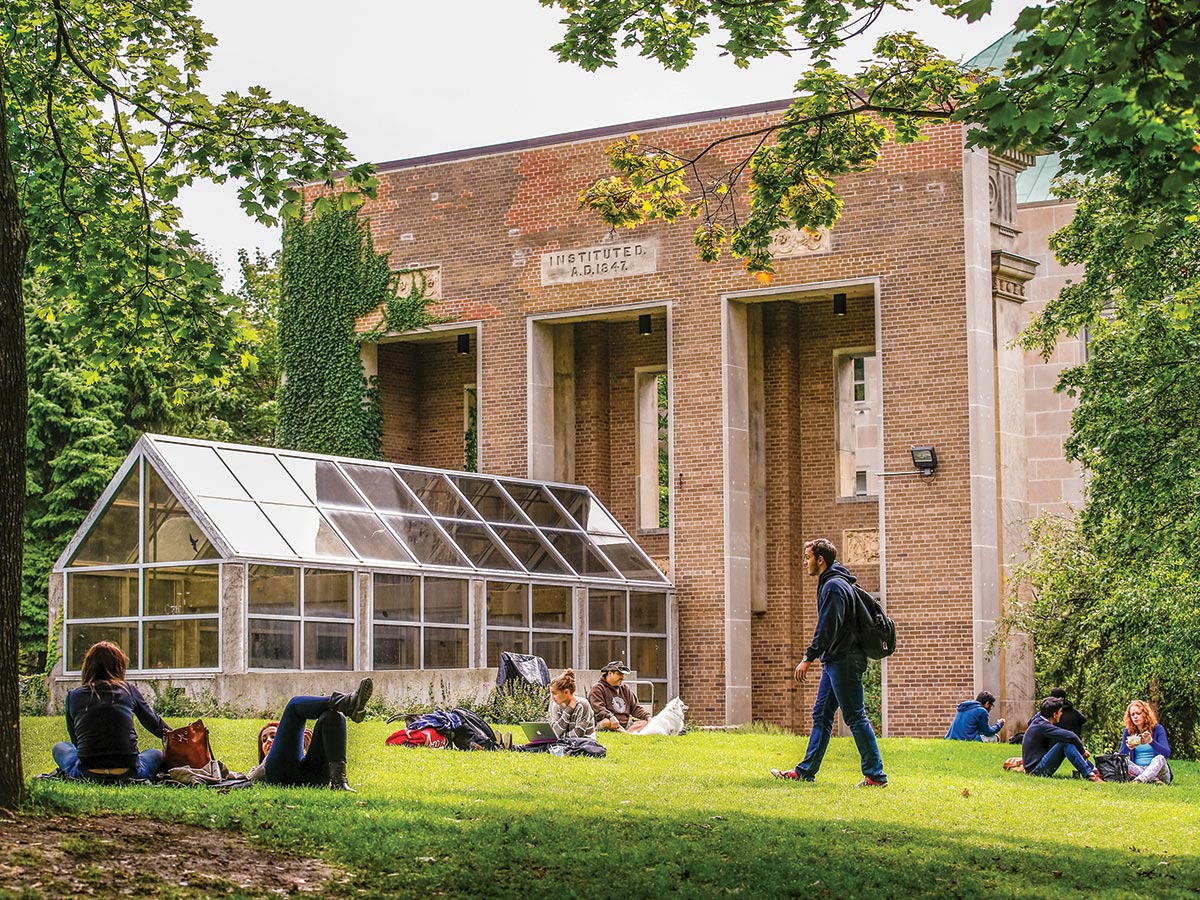Data Science and Analytics (MSc)

Format: One year full-time or two year part-time (MRP option) and two year full-time (Thesis option)
Delivery: Fully virtual, or combination of virtual and in-person courses
Degree Earned: Master of Science
This unique Master of Science (MSc) degree program enables students to develop interdisciplinary skills, and gain a deep understanding of technical and applied knowledge in data science and analytics. Graduates are highly trained, qualified data scientists who can go on to pursue careers in industry, government or research. The program is offered as a one year full-time or two year part-time MRP option and two year full-time Thesis option.
The MSc in Data Science and Analytics is delivered in both lecture-based and hands-on lab learning environments where students can develop and apply their skills to complex, real-world datasets and data science and analytics problems.

- Completion of a four-year undergraduate (or equivalent degree) from an accredited institution in engineering, science, business, economics or a related discipline
- Minimum grade point average (GPA) or equivalent of 3.00/4.33 (B) in the last two years of study
- Statement of interest
- Resumé/CV
- Transcripts
- Two letters of recommendation
- English language proficiency requirement
More information on admission requirements. Due to the competitive nature of our programs, it is not possible to offer admission to everyone who applies that meets the minimum entrance requirements for the program.
Prospective students are expected to demonstrate working knowledge of statistics, data structures and algorithms, databases and R software packages. These prerequisites can be documented through prior completion of university or college level degree credit courses equivalent to the following courses that are offered at the G. Raymond Chang School of Continuing Education at Toronto Metropolitan University:
- CIND 123: Data Analytics: Basic Methods (formerly CKME 132: Statistics and R Programming)
- CIND 110: Data Organization for Data Analysts (formerly CKCS 110: Database Management)
CIND830 Python Programming for Data Science
(CIND830 Python Programming for Data Science replaces CCPS 305 Data Structures from the Fall 2020 term. The program will keep accepting CCPS305 as a prerequisite course for all those who complete it up to and including the Winter 2021 term)
Students are encouraged to submit applications prior to the first consideration date to increase their chances of securing financial support for their graduate studies. Applications received after the first consideration date will be accepted and reviewed based on spaces remaining in the program.
See application dates.
For detailed graduate tuition and fees information please visit Fees by Program.
For information on scholarships, awards and financing your graduate studies visit Financing Your Studies.
- Domain knowledge
- Machine learning
- Math
- Operations research
- Programming
- Statistics
- Advanced Data Visualization
- Bayesian Statistics and Machine Learning
- Data Mining and Prescriptive Analysis
- Designs of Algorithms and Programming for Massive Data
- Interactive Learning in Decision Processes
- Machine Learning
- Management of Big Data and Big Data Tools
- NLP (Text Mining)
- Social Media Analytics
- Students can apply to participate in DMZ programming, where they have the opportunity to create their own startups or work with companies engaged in big data and data science.
- Students may have direct access to various international partners and/or exchange programs to enhance their learning experience.
- Toronto Metropolitan University’s Big Data Initiative (BDI) spans many academic units and research areas. The Data Science Laboratory, RC4 High Performance Computing Facility, and Privacy and Big Data Institute are part of Toronto Metropolitan University's cross-university BDI agenda to develop new tools and apply them to advance organizational performance across sectors.
- The program engages with various industry and government partners from diverse domains.
Graduate Admissions
Admissions information and how to apply
Graduate Studies Admissions Office
11th Floor, 1 Dundas Street West
Toronto, ON
Telephone: 416-979-5150
Email: gradhelp@torontomu.ca
For information specific to programs, please see the program contact information below.
Program Contacts
Dr. Ayse Bener
Graduate Program Director
PhD, Information Systems, London School of Economics
Research areas: machine learning, recommender systems and big data applications
Telephone: 416-979-5000 ext. 553155
Email: ayse.bener@torontomu.ca
Igor Rosic
Graduate Program Administrator
Telephone: 416-979-5000 ext. 553693
Email: datascigrad@torontomu.ca
 (external link)
(external link)
Student Profile (external link)
Marcia Hon (data science and analytics MSc alumna) reflects on how the program propelled her career to land a job with the Centre for Addiction and Mental Health.

Once you’ve made an informed choice about which program(s) you are going to apply to, preparing your application requires careful research and planning.
Funding
At Toronto Metropolitan University, we understand that pursuing graduate studies is a significant financial investment. Funding comes from a combination of employment contracts (as a teaching assistant), scholarships, awards and stipends. There are a number of additional funding sources – internal and external – available to graduate students that can increase these funding levels.
Research
As an urban innovation university, Toronto Metropolitan University offers 60+ cutting-edge, career-oriented graduate programs, as well as 125+ research centres, institutes and labs, in a wide range of disciplines. Our close connections with industry, government and community partners provide opportunities to apply your knowledge to real-world challenges and make a difference.
